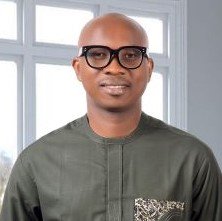Transforming Development in Africa: The Farreach Perspective, Framework, and Theory by Chijioke Dikeocha
Development theory has evolved significantly over the decades. From the optimism of modernization theory to the critique of dependency theory, international development has been shaped by complex paradigms that attempt to address global inequalities. However, despite the breadth of these theories, many have faced challenges when applied to diverse regions like Africa. This is where the Farreach Perspective, Farreach Framework, and Farreach Theory developed by Chijioke Dikeocha provide a refreshing, inclusive, and long-term approach to development.
In this article, we will explore how Dikeocha’s work stands out from other development theories and how development professionals can utilize these frameworks to create more meaningful and sustainable interventions in Africa.
The Farreach Perspective: A Holistic View of Development
Traditional development perspectives often focus on economic growth, technological advancement, or political reform. While these aspects are important, the Farreach Perspective urges a more comprehensive approach, one that considers the historical, cultural, and ecological contexts that shape a community’s development.
What Makes the Farreach Perspective Different?
Unlike theories like Modernization Theory, which assumes a universal path to progress based on Western models, the Farreach Perspective emphasizes that development is not a one-size-fits-all solution. Instead, it calls for a local-centric, bottom-up approach, ensuring that development respects local values, knowledge systems, and community needs.
For example, Modernization Theory posits that developing countries must follow the same path as industrialized nations to achieve economic success. However, the Farreach Perspective challenges this linear assumption by recognizing the rich cultural and historical contexts of communities. It asks:
- What are the indigenous practices that can drive development?
- How can local histories and cultural assets empower communities?
Reframing Development with Farreach
Rather than viewing communities as passive recipients of aid, the Farreach Perspective sees them as active agents of change. It is a perspective rooted in justice, resilience, and long-term sustainability, moving away from short-term, donor-driven projects toward generational development.
The Farreach Framework: Connecting the Dots
The Farreach Framework builds upon this perspective, offering a structured tool for navigating the complex dimensions of development. It integrates five interconnected pillars that guide development interventions:
- Historical Justice: Acknowledging and addressing the lasting impacts of colonialism, slavery, and post-colonial exploitation.
- Cultural Integrity: Recognizing the importance of indigenous knowledge, practices, and values in the development process.
- Ecological Stewardship: Prioritizing environmental sustainability and climate resilience as the foundation for all development work.
- Power Redistribution: Actively shifting decision-making power to local communities, especially marginalized groups such as women, youth, and indigenous peoples.
- Transformational Resilience: Fostering long-term resilience that allows communities to adapt to social, political, and environmental changes without losing their cultural identity or dignity.
Farreach Framework vs. Other Frameworks
Traditional frameworks like Participatory Development and Sustainable Development emphasize the inclusion of local voices or environmental sustainability, respectively. However, the Farreach Framework goes a step further by integrating these dimensions into a unified, systems-based approach. It not only listens to local communities but actively redistributes power and prioritizes environmental justice as integral to the development process.
For instance, Participatory Development often highlights the importance of involving local stakeholders in decision-making but often falls short when it comes to truly redistributing power. The Farreach Framework, in contrast, demands that development initiatives explicitly empower marginalized groups and challenge existing power dynamics.
The Farreach Theory: A New Paradigm for Development
At its core, Farreach Theory challenges the notion that development is simply a linear, external intervention. Rather, it asserts that development is relational and should be rooted in authentic, locally defined success.
Farreach Theory vs. Dependency Theory
Dependency Theory, as articulated by scholars like Andre Gunder Frank, focuses on the structural imbalances between the Global North and Global South. It critiques the exploitation of developing nations through neocolonial economic systems. While the Farreach Theory shares this critique, it goes beyond merely exposing external inequalities. It actively seeks to shift power by building on local capacities and resources.
While Dependency Theory is largely concerned with the global economic system, Farreach Theory considers not only external forces but also the agency of local communities in shaping their own futures. It moves from a victim narrative to a story of empowerment.
Farreach Theory: Co-Creation Over Imposition
Traditional development theories like Modernization and Dependency often fall into the trap of framing development as something that is “given” to communities by outside actors. Farreach Theory, however, embraces co-creation, where development outcomes are shaped in partnership with local communities, building on their unique cultural, ecological, and historical assets.
Applying the Farreach Approach: Tools for Development Workers
So, how can development workers practically apply the Farreach Perspective, Framework, and Theory in Africa to ensure more impactful interventions?
1. Start with Historical Awareness
Understanding a community’s historical context is essential to designing effective interventions. Development workers should assess the impact of colonialism, slavery, and past policies on local structures, as well as identify ways to address the ongoing consequences of these histories.
2. Center Cultural Integrity
Ensure that programs respect and integrate local traditions, knowledge, and practices. This can include incorporating indigenous agricultural practices, local governance models, and spiritual beliefs into project design. Development should never be a process of cultural erasure, but one of cultural empowerment.
3. Focus on Power Redistribution
Power dynamics often determine who benefits from development projects. Practitioners should actively seek to shift decision-making and resource allocation to local communities, especially marginalized groups such as women, youth, and ethnic minorities.
4. Integrate Ecological Stewardship
Incorporating environmental sustainability into development interventions is crucial. The Farreach Framework stresses the importance of climate resilience, biodiversity conservation, and sustainable agriculture to ensure that interventions are environmentally sound and long-lasting.
5. Prioritize Transformational Resilience
Development efforts should not only address immediate needs but also empower communities to face future challenges. This requires building local leadership, fostering community-based resilience, and ensuring that interventions create long-term benefits for future generations.
Conclusion: A Path Toward Empowerment and Sustainability
The Farreach Perspective, Framework, and Theory offer a comprehensive, locally driven, and justice-oriented approach to development. By focusing on historical justice, cultural integrity, ecological stewardship, power redistribution, and transformational resilience, these tools provide a roadmap for more effective, sustainable, and empowering interventions in Africa.
For development workers seeking to move beyond the traditional donor-driven models and work toward lasting, transformative change, Farreach offers a powerful alternative — one that is rooted in the realities of African communities, respects local knowledge, and aims for holistic and equitable development.
This approach is not just a theory, but a call to action for those who are committed to shifting power and co-creating solutions for a more just, sustainable, and self-reliant Africa.


